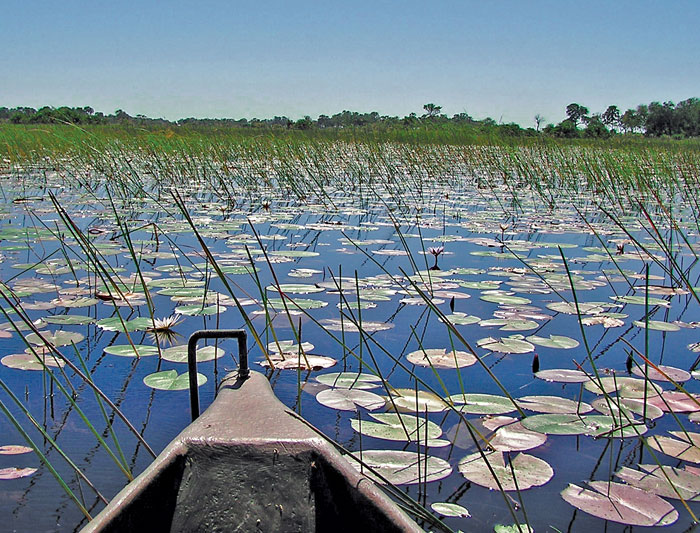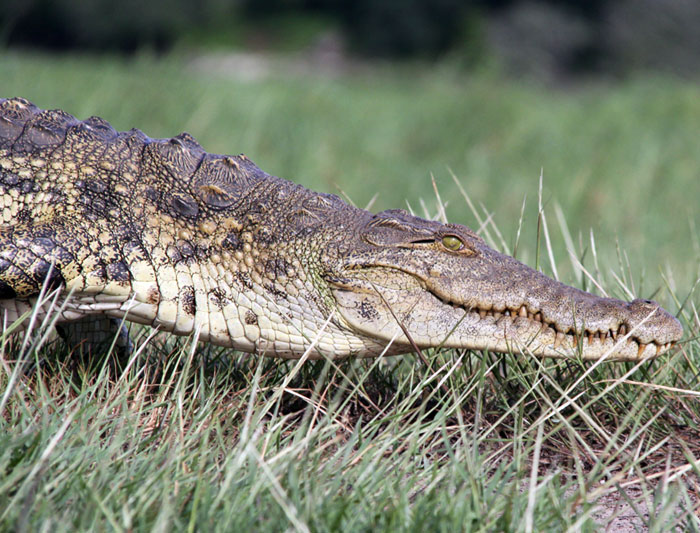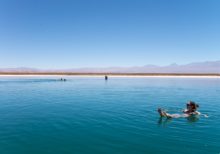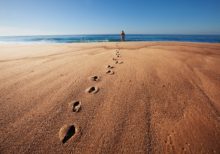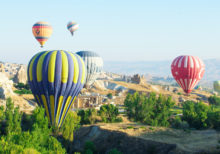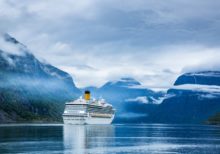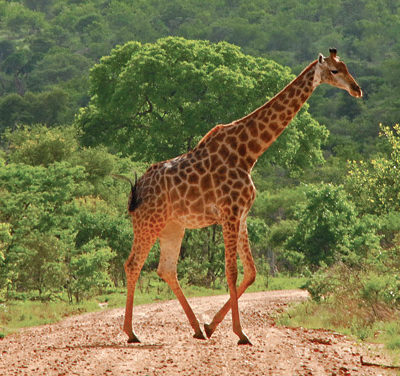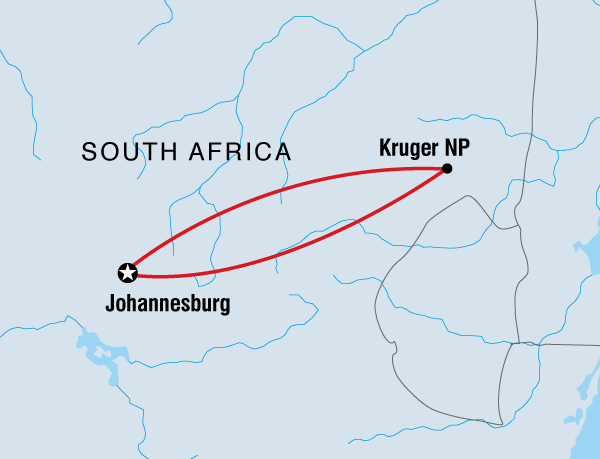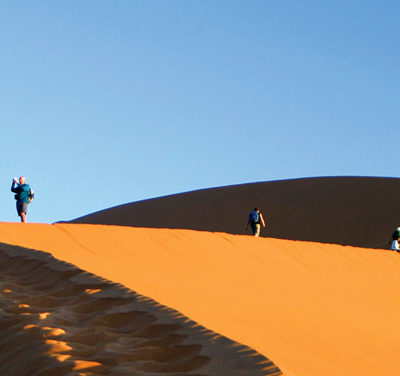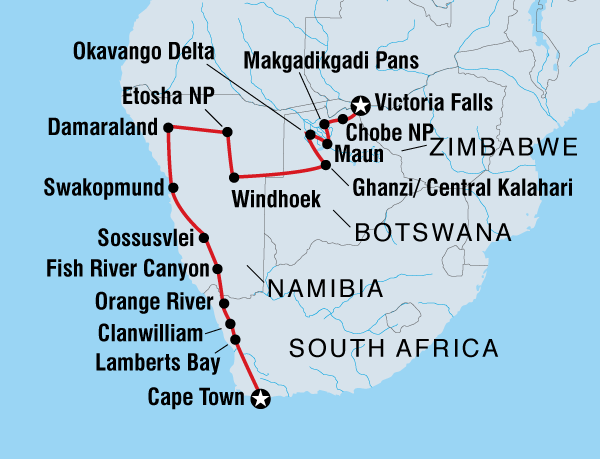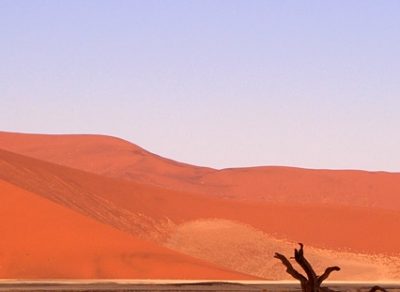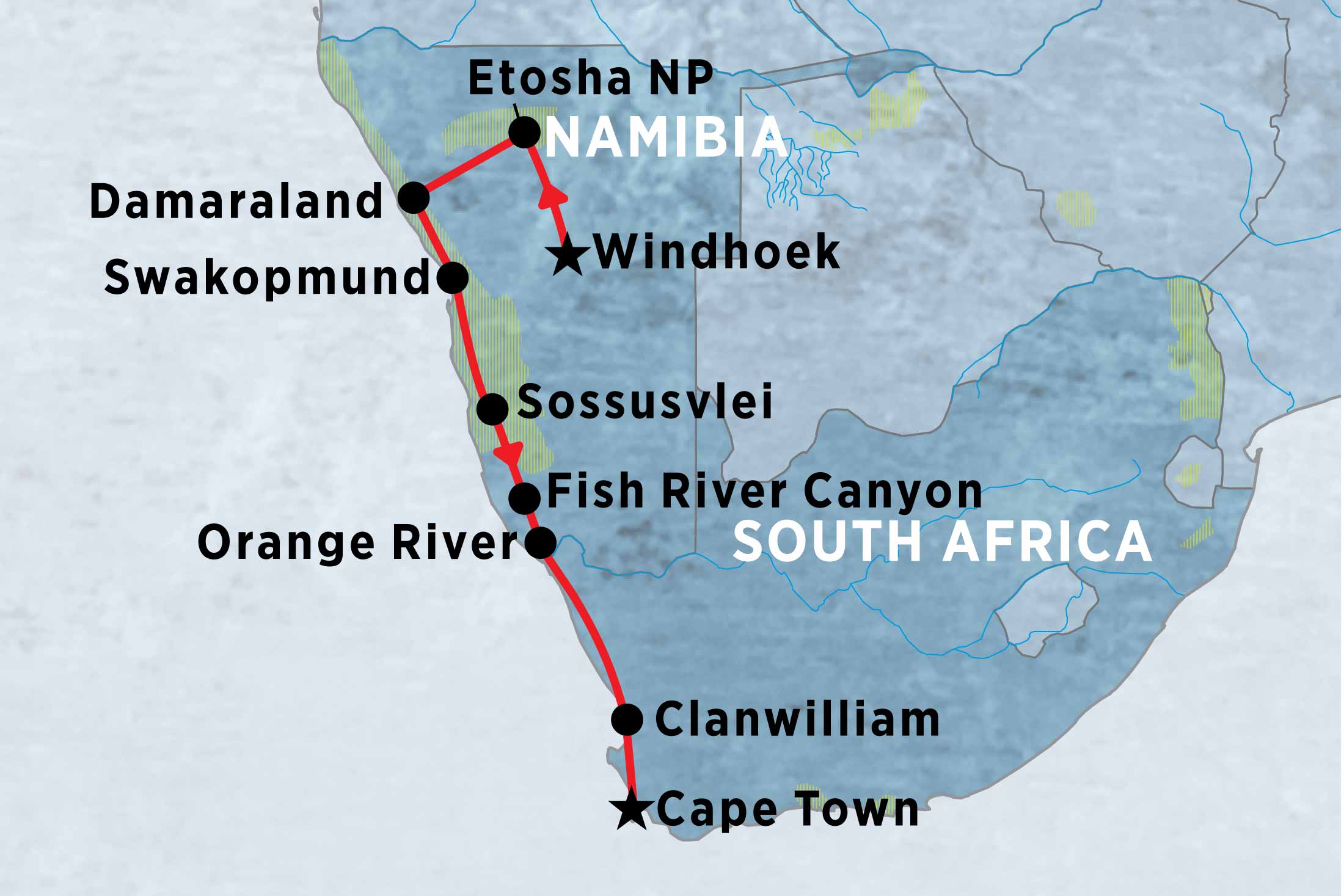| Starts | Johannesburg, South Africa |
|---|---|
| Ends | Johannesburg, South Africa |
| Region | Botswana |
| Duration | 18 days |
| Tour Operator | Intrepid Travel |
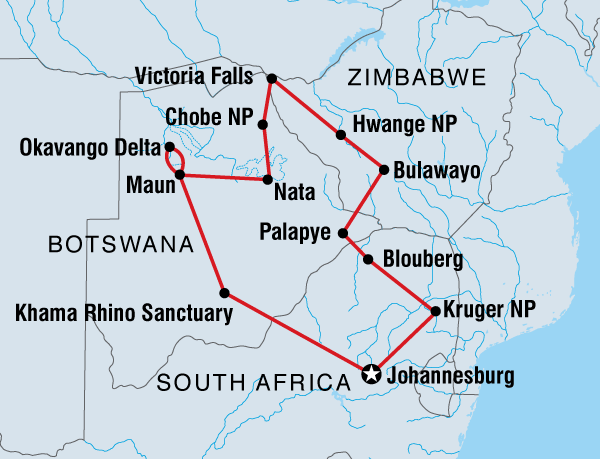
Itinerary
Day 1 - Starting: Johannesburg & Finishing: Johannesburg
Sawubona! Welcome to South Africa. Your adventure begins with a welcome meeting at 6 pm. You can arrive at any time as there are no activities planned until this important meeting. Please ask the hotel reception where it will take place. If you can't arrange a flight that will arrive in time, consider arriving a day early so you are able to attend. If you are going to be late, please inform the hotel reception. We'll be collecting your insurance details and next of kin information at this meeting. If you arrive early, get out and explore Johannesburg, a city of remarkable contrasts. Perhaps visit the culturally rich areas of Newtown, Braamfontein or Maboneng. The eye-opening Apartheid Museum is well worth your time. Notes: Please make sure that if you explore Johannesburg on your own that you get local advice as to where it is safe to walk, especially in the evening. The level of crime here may be higher than what you are used to.
Day 2 - Starting: Khama Rhino Sanctuary & Finishing: Khama Rhino Sanctuary
Leaving South Africa behind, cross the border into Botswana and travel toward the Khama Rhino Sanctuary (approximately 8–10 hours). Situated on the edge of the Kalahari Desert, the Khama Rhino Sanctuary is a conversion of a former hunting area into a conservation project. Built to protect Botswana's only remaining populations of both black and white rhinos, the sanctuary is also home to other wildlife including zebras, giraffes, leopards, ostriches and wildebeest, all of which can be seen around the many natural waterholes. Visiting this project benefits local communities and contributes to the protection of the highly endangered white rhinoceros. Later, head out on a dusk game drive to see the rhinos when they are at their most active. At your camp there will be the option to upgrade to a room for an additional cost (subject to availability).
Day 3 - Starting: Maun & Finishing: Maun
Jump aboard the truck and head to Maun (approximately 8–9 hours). Here there will be an opportunity to stock up on any supplies you might need for the journey ahead. Maun is the gateway to one of the world's most renowned and complex ecosystems, the Okavango Delta. This place is unlike anything in the world – a 16,000 square kilometre maze of wetlands made up of meandering waterways, green islands, lush plains and prolific wildlife. You might see hippos, crocodiles, elephants and big cats. But it's not the animals that are the main attraction – it's the incrediblly diverse ecosystem and atmospheric waterscapes. Tonight you'll stay on the outskirts of Maun at a simple campsite with shared facilities, WiFi and optional upgrades.
Day 4 - Starting: Okavango Delta & Finishing: Okavango Delta
Traverse the waterways by mokoro, a traditional dugout canoe navigated by friendly local 'polers'. With some luck, you might spot some of the delta's unusual wildlife and exotic birdlife. Spend time exploring the maze of lagoons, lakes and streams on foot, led by experienced and knowledgeable guides. Tonight you will camp on a remote island in the heart of the wilderness. In this far-out spot, facilities are non-existent, so you will dig a bush toilet and go without a shower. It's all part of the Okavango experience. At night, fall asleep to the humming and buzzing of the African wilderness.
Day 5 - Starting: Okavango Delta & Finishing: Okavango Delta
Wake up early and venture out for a sunrise walk. Along the way, keep watch for some elephants. You might also come across some Cape buffalo, if the timing is right. These rather noble-looking creatures are more dangerous than they look, and their horns make for a kind of bone shield that's fittingly known as a 'boss'. Returning to camp for breakfast, take the rest of the day to relax. A refreshing swim, or perhaps a nap, is a good idea in the warmer part of the day. Alternatively, take another mokoro trip to soak up more of that delightful river atmosphere.
Day 6 - Starting: Maun & Finishing: Maun
After taking down your camp, take the mokoro back to the poling station and then travel once again to Maun (approximately 2–3 hours). Today you'll visit a rural village and interact with some of the locals. This will give you an insight into daily life on the Okavango Delta and perhaps some background history on these awesome sprawling waterways that are the lifeblood of many. Tonight you will camp on the outskirts of Maun at a simple campsite which has shared facilities. WiFi and optional upgrades are available.
Day 7 - Starting: Nata & Finishing: Nata
Get up early and hit the road for Nata (approximately 6–7 hours). This small town is situated just near the stunning Makgadikgadi Salt Pans, which are some of the largest salt flats on earth, covering some 12,000 square kilometres. This afternoon you will have the opportunity to explore the pans in an open vehicle. The pans are naturally dry and salty for a large part of the year. During this time the arid landscape has an eerie feel to it as heat mirages disorientate the senses. At other times they take on a layer of grass, and as soon as the rains hit they become a refuge for migratory birds and animals. Your campsite tonight is situated on the edge of the pans. It has a restaurant, swimming pool, gift shop, ATM and bar/lounge area. Upgrades are also offered.
Day 8 - Starting: Chobe National Park & Finishing: Chobe National Park
Hit the road for Chobe National Park (approximately 6–7 hours). Botswana's first national park is perhaps best known for its high concentration of elephants, which can often be seen swimming in the Chobe River. The river also attracts wallowing hippos, a variety of birdlife, crocodiles sunning themselves by the water's edge, and cheetahs and lions which come down to drink. Enjoy a sunset cruise on the Chobe River, a very relaxing way to spend the afternoon. Your camp tonight has WiFi access and optional upgrades. It's also close to a supermarket, so you can stock up on supplies while you're here.
Day 9 - Starting: Victoria Falls & Finishing: Victoria Falls
Travel on to Victoria Falls today (approximately 2–3 hours). You will cross the border into Zimbabwe in time to have lunch on the banks of the Zambezi. Then it's time to experience the sight and sound of the mighty falls. This thundering curtain of water is about a mile wide, falling 108 metres into a narrow gorge below. In the wet season, the spray created can rise up an incredible 400 metres and the falls become an impressive raging torrent. In the dry season, the view of the falls is unobstructed by spray and you can see little islets in the river below. Your leader will also take you to a local activity centre where a range of activities will be on offer. Your campsite tonight has WiFi, an ATM and optional upgrades. Notes: Intrepid has not risk-assessed all activities. If you are unsure about any, please check with your leader. Note that it is against company policy for leaders to facilitate the booking of any activities that have not been risk-assessed or do not adhere to Intrepid's Responsible Travel ethos. This includes organising transport to and from these activities in Intrepid vehicles. You may also hear about the Devil's Pool. Intrepid does not recommend this activity, due to the high risk involved. Our leaders cannot assist in organising this activity.
Day 10 - Starting: Victoria Falls & Finishing: Victoria Falls
Today is a free day. There are many activities and sights to do and see around Victoria Falls. If you are interested in the Optional Helicopter flight ( 12 minutes or 25 minutes ) we endorse the following operator only: Zambezi Helicopter co CAA Zimbabwe. Your leader can help you arrange this activity.
Day 11 - Starting: Hwange National Park & Finishing: Hwange National Park
Leave Vic Falls behind and head to Hwange National Park (approximately 6 hours, depending on traffic). You will explore this stunning wildlife arena in an open 4X4 vehicle. Hwange National Park became the royal hunting grounds of the Ndebele warrior-king Mzilikazi in the early 19th century and was set aside as a national park in 1929. Today Hwange boasts a tremendous selection of wildlife with over 100 species of mammals and nearly 400 bird species. The elephants of Hwange are world famous – here you'll find one of the largest elephant populations in Africa. At tonight's camp there is WiFi as well as optional accommodation upgrades (subject to availability).
Day 12 - Starting: Bulawayo & Finishing: Bulawayo
Make tracks for Matobos this morning (approximately 7–8 hours). Take a short detour through the town of Bulawayo, glimpsing its beautiful colonial buildings, before heading to your camp for the next two nights. Home to a large population of black and white rhinoceros that can be tracked on foot, Matobo National Park is also the site of the grave of Cecil John Rhodes, the founder of Rhodesia and the De Beers diamond company. The Matopos area has great spiritual and cultural significance to the local people and there are many sites within the park where important ceremonies still take place. Your campground tonight has shared facilities, WiFi access and optional upgrades.
Day 13 - Starting: Matobos National Park/Bulawayo & Finishing: Matobos National Park/Bulawayo
Depart Bulawayo for Matobo Hills. Discover bushman paintings, intriguing rock formations and delightful scenery in the national park throughout the morning. Then you will venture to nearby African villages and meet some of the local community. After a cold lunch, pay a visit to a part of the park where rhinos can be tracked on foot with the help of your guides. Here there will be the chance to spot other game (the park is home to klipspringers, leopards, warthogs and springhares among many others). You can also learn about the various local plant and trees, wild pear and paperbark among them.
Day 14 - Starting: Moremi Gorge & Finishing: Moremi Gorge
Get up early this morning and hit the road for our Moremi Gorge camp (approximately 6–7 hours, depending on the border crossing). Once arriving at the campsite perhaps take a short hike in the beautiful surrounds. The camp tonight is basic with no hot water, upgrades or Wi-Fi.
Day 15 - Starting: Blouberg & Finishing: Blouberg
Depart early for Blouberg in South Africa's Limpopo province (approximately 6–7 hours). You should arrive in the late afternoon. Here at the base of a mountain, where there are no roads, you'll find the Hanawa people, a small village community, many of whom still lead an age-old way of life. Take a walk with your local guide, following paths along the base of the Blouberg Mountains and listening to stories of the tribe. You'll visit a Lutheran missionary village (Bochum) and then some local village taverns (shebeens) where locals will provide an evening meal – perhaps mazie and watermelon (Thopi), chicken-based stews (Malana) or a green vegetable called marogo. You can also sample their traditionally brewed beer. Note that vegetarians will have limited options – speak to your leader to arrange an alternative. There are optional upgrades at camp tonight.
Day 16 - Starting: Kruger National Park & Finishing: Kruger National Park
Journey to Kruger National Park (approximately 8–9 hours). There will be an opportunity to stop at a shop or market for any supplies you might need. One of the largest game reserves in Southern Africa, Kruger National Park is home to over 500 bird species, 100 species of reptile and 150 mammal species, including the Big Five and the endangered African wild dog. Your wildlife experience begins as soon as you enter the park. You will head straight into prime game viewing areas, glimpsing anything from antelopes and eland to cheetahs and rhinos. Your campground, situated within the park itself, has shared facilities, hot and cold water, and optional upgrades.
Day 17 - Starting: Kruger National Park & Finishing: Kruger National Park
Rise early and have a light breakfast of coffee and rusks before embarking on a full-day game drive in the truck. Most of the day will be spent game viewing, bird watching and stopping at various waterholes and viewpoints. Depending on the season, you might catch sight of a saddle-billed stork with its distinct red beak, or the blue waxbill which is commonly found foraging for seeds in the scrub. In the afternoon when it's warm, take some time out to relax. Later on there is an optional night drive with the park guide to spot nocturnal animals and perhaps even a night-time predator or two.
Day 18 - Starting: Johannesburg & Finishing: Johannesburg
It's time to head back to Johannesburg (approximately 9–10 hours). There's plenty of time to stop and explore along the way. You will take in amazing vistas at the viewpoint over Blyde River Canyon and view the Three Rondavels. This trip finishes on arrival in Johannesburg at the finishing point hotel. No accommodation is provided for tonight, but this can be arranged when you book this trip. If you're catching an outgoing international flight, it's important to book it for 10 pm or later, to allow for delays.
View Dates

